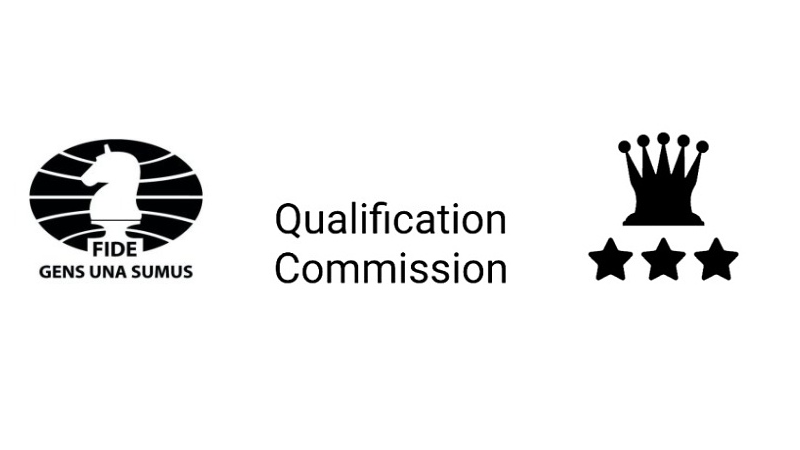The FIDE Qualifications Commission (QC) is responsible for managing and maintaining the integrity of the FIDE Ratings System (FRS) and the FIDE Titles System. In doing so, QC is guided by the following principles:
– The FIDE Qualification Commission regards FIDE Titles as being earned as a result of competitive play, where all players in an event are playing under the same conditions and are aiming to achieve the best possible tournament outcomes.
– Under the management of FIDE, the FIDE Rating System (FRS) processes results from competitive chess events, played according to FIDE rules and tournament regulations, to provide a statistically meaningful measure of a player’s chess ability, as measured against the abilities of their contemporary chess players.
– QC does this with the cooperation of players, arbiters, tournament organisers, and Federation Ratings Officers. The expectation is that tournaments submitted for rating to the FRS meet the regulatory and ethical standards expected by FIDE. Organisers are reminded that under regulation B.02.0.4 (FIDE Handbook), FIDE reserves the right not to rate a specific tournament. The organiser of the tournament has the right to appeal to the FC. Such an appeal must be made within seven days of the communication of the decision.
FIDE QC has removed Scheveningen and Schiller formats from the FIDE Title Regulations. This decision takes effect on March 1, 2024. The reasoning behind this decision is that not all players play under the same conditions. In these formats, players aiming to achieve title norms have a different motivation and rewards than players who already have titles. QC believes that titles are earned as a consequence of achievements in high-level competitive play, not simply by ‘passing an exam’ against a set of previously titled players.
FIDE QC have also investigated a number of tournaments where the motivation was either (a) designed to increase the ratings of a subset of players; (b) generate artificially high starting rating for a player or players; (c) arrange for a player (or players) to achieve a title (by rating), title norms, or other reward, through the manipulation of results. Where these cases have been identified, FIDE QC has decided not to approve such events if detected in advance or remove such events from the FRS if detected later. In the most serious of cases, QC has reported such events to the FIDE Fairplay Commission, FIDE Ethics Commission and FIDE Arbiters Commission.
FIDE QC recognises that it is difficult to detect all such cases of ratings manipulation, but with the continued cooperation of arbiters, organisers and federations, we are taking serious steps to reduce the number of cases.
Examples of events under investigation
(a) A Scheveningen or match event where one team contains older players while the other team consists mainly of young players. The clear intent is to transfer rating points from older players (with a K factor of 20/10) to younger players (with a K factor of 40). In a normal round robin or Swiss, such players would play a mix of opponents and ages.
(b) An unrated player (or group of players) playing a Schiller/Scheveningen or RR against highly rated (2000+) opponents. The score of the unrated player(s) is sufficient to give them a very high (2100+) initial rating. The vast majority of players gain their rating through Swiss events or against fields with much lower ratings.
(c) A player needing a specific score to achieve a specific outcome does so through a series of “non-competitive” games (e.g. short draws, blunders by higher-rated opponents, stand-alone matches between players with significant rating differences). While it is difficult to identify this behaviour from a single game, such repeated results will draw the attention of FIDE QC.







